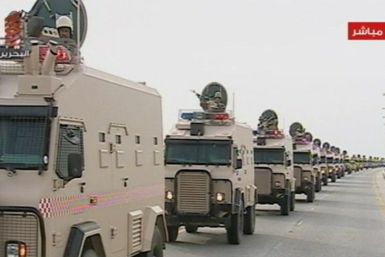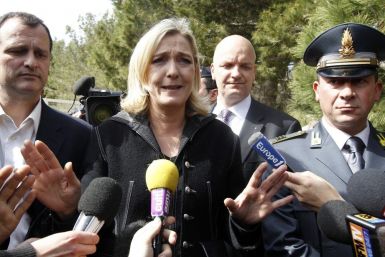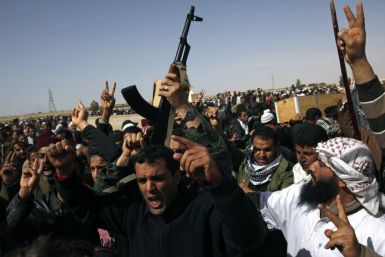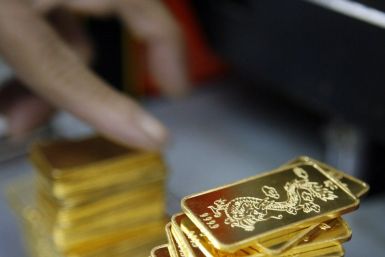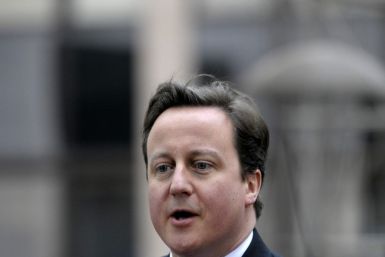Brent crude fell below $110 a barrel for the first time in nearly three weeks on Tuesday as a deepening nuclear crisis in Japan and rising radioactivity levels heightened risk aversion across financial markets.
The decision by Saudi Arabia and other GCC countries to send armed forces to Bahrain to help quell protests is bad enough; but worse is the explanation that the move is in accordance with a Gulf Cooperation Council (GCC) defense pact.
The leader of France’s extreme right-wing National Front party, Marine Le Pen, has said that North African migrants who have arrived on the Italian island of Lampedusa to escape from unrest in Tunisia and Libya should be immediately turned back to their native countries.
Forces loyal to Libyan leader Moammar Gaddafi have bombed the town of Ajdabiya, as government soldiers appear to be advancing deeper into rebel-controlled areas of the country.
Oil slipped on Monday on concerns over the economic impact from Japan's earthquake and tsunami, although prices were off two week lows, underpinned by continued unrest in oil rich North Africa and the Middle East.
Oil fell to two-week lows on Monday, slipping nearly $3 at one point, as concerns over the economic impact from Japan's catastrophic earthquake and tsunami knocked global investor confidence.
Oil fell to two-week lows on Monday, slipping nearly $3 at one point, as concerns over the economic impact from Japan's catastrophic earthquake and tsunami knocked global investor confidence.
Gold Bullion prices jumped at the start of Asian trade on Monday, gaining 1% against all major currencies as news broke that a third nuclear reactor north-east of Tokyo has gone into meltdown following last week's Japanese tsunami.
Secretary of State Hillary Clinton will meet with members of the Libyan opposition in Paris on Monday as she takes part in a broader Europe and Northern Africa Trip where she will also visit Egypt and Tunisia.
A cameraman for Arabic television network Al Jazeera has been murdered in what is believed to have been an ambush near Benghazi in rebel-controlled eastern Libya.
Oil fell to two-week lows on Monday, slipping nearly $3 at one point, as concerns over the economic impact from Japan's catastrophic earthquake and tsunami knocked global investor confidence.
Brent crude on Monday fell by as much as 1.2 percent to below $113 on investor pessimism that economic growth will slow in the wake of Japan's earthquake and tsunami, while easing unrest in the Middle East threw the focus back onto ample oil supplies.
Earthquake in Japan. Unrest in the oil-producing Arab world. Sovereign-debt strains in Europe. Inflation in China.
The earthquake disaster in Japan looks set to dominate a Group of Eight foreign ministers meeting this week in Paris as members discuss ways to coordinate help for the only Asian country in the group.
Communiqué of European Council on the crisis in Libya, March 11, 2011, Brussels
The United States must reduce its dependence on oil and begin to reform energy policy, President Barack Obama said on Friday, pledging to do all he could to keep gasoline prices low.
The trading pattern of the prices of stocks and crude oil looks worryingly like it did just before the last recession.
Oil prices fell on Friday after a massive earthquake shook Japan, the world's third-largest oil consumer, sending a tsunami sweeping across the Pacific Ocean and pushing U.S. crude prices below $100.
Oil slid by on Friday, with U.S. crude falling below $100, after an earthquake rocked Japan, created a 10-meter tsunami and shut down dozens of plants in the world's third-largest oil consumer.
Libya has freed a three-member crew of a Dutch navy helicopter who were earlier captured by pro-government forces when they sought to evacuate civilians from the strife-torn nation.
Gold-buying prices held at two-week lows vs. the Dollar in London on Friday, as the US currency jumped and world stock markets sank after a powerful tsunami hits the Japanese coast 190 miles north-east of Tokyo.
The British government has offered Japan any assistance it may need after the massive earthquake and tsunami that smashed into the country, according to UK foreign secretary, William Hague.








